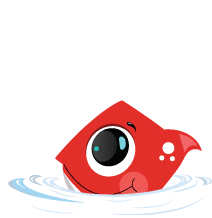Parents who want INSTANT RESULTS from a swim class will most probably be disappointed.
- Finns BSC
- Aug 28, 2019
- 3 min read
Updated: Sep 10, 2019

Perhaps this is a worry of most swim parent because their expectations have never been set in regards to “how soon”, or “how fast” it should take. But the truth is that there are just too many factors that influence the pace of learning in order to make an accurate prediction that fits each and every child. There is no simple answer to this question, but we can ensure with these influential guidelines, it will help in your child’s learning process:
Trust in the Learning Process - At Finns BSC, we have developed a process that is proven to work for teaching children how to swim by using the science of learning and science of teaching methodology. We DON'T believe in the sink-or-swim mentality of old and also swimming must be all 4 technical strokes, instead, we believe in progressively developing children essential water safety, water confidence and getting comfortable with movement in water and not to neglect nurturing the “Joy of Learning”, especially as children hit two years old and older, they naturally develop uncertainty of new experiences. Therefore, our lesson curriculum and approach process depict the many stages of a child's attributes which begin by establishing a bond between the student and with all the teachers. It is essential for parents to support this process by encouraging their children to trust the teachers and by trusting the teachers themselves your child will anticipate and participate in the lessons.
Developmental Stages - At each stage of development, children are generally capable of learning different skills. As any pediatrician will tell you, the ages in which children are “supposed” to hit those developmental stages are purely averages. Parents should not be obsessed about the age at which their child should be able to achieve something or comparing your child with other older and/or similar age children. Instead, parents should focus on their child’s overall intellectual learning skills, physical abilities and social emotional developments. If your child loves coming to a swim lesson, that's a celebration, it means the learning process continues. You will be surprised how much they love coming to swim.
Past Experiences - A child’s past experiences can play a major role on the speed at which he or she learns a new skill. From children who developed a fear of the water due to an earlier traumatic experience to those who have a distrust of strangers, overcoming fears and insecurities can often take priority over learning the actual skill at hand. Children with more of these challenges to overcome may progress a little slower, but with gentle and steady guidance, they will be swimming with the other kids in no time.
Outside Practice - As with everything in life, perfect practice makes perfect. If your child seems to be falling behind in swim lessons and you’re wondering what you can do to help, get in the water with them during the days they don’t have swim lessons. Talk with your child’s about his funny and silly swim teachers at Finns BSC and games that they’ve played together, that will reinforce the skills the teacher slits-in during the play that they’ve learned in class. And remember to have fun with your kids when you’re in the water together in order to continue nurturing their love of the water.
Finns BSC teachers uses an exciting approach to help swimmers of all ages to learn the skills necessary for a lifetime of swimming enjoyment. Our certified swim teachers are experienced in teaching all levels, and they are able to help parents differentiate between a child’s normal progression and signs of developmental issues that should be observing.





























Comments